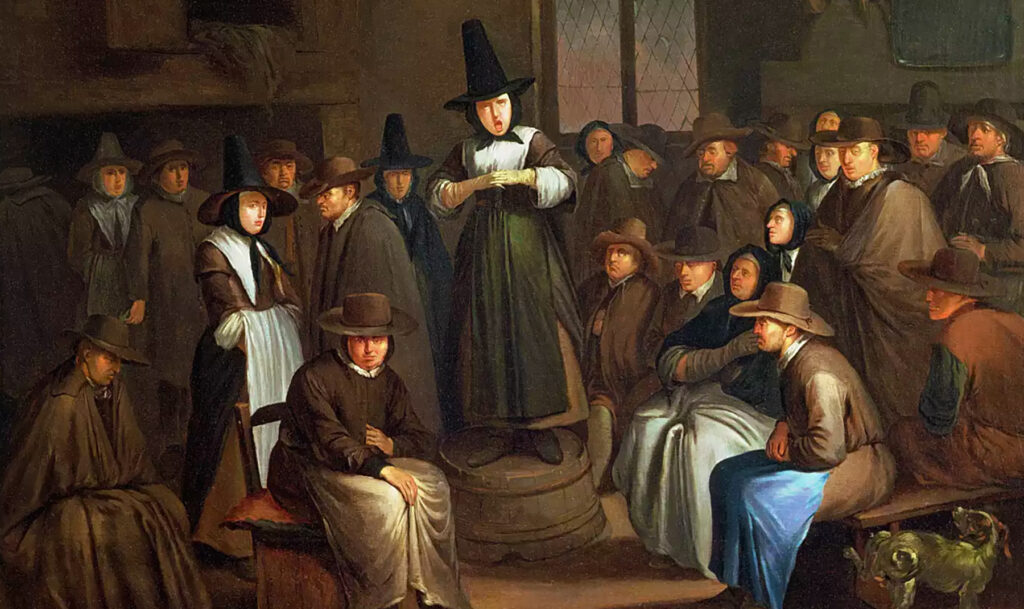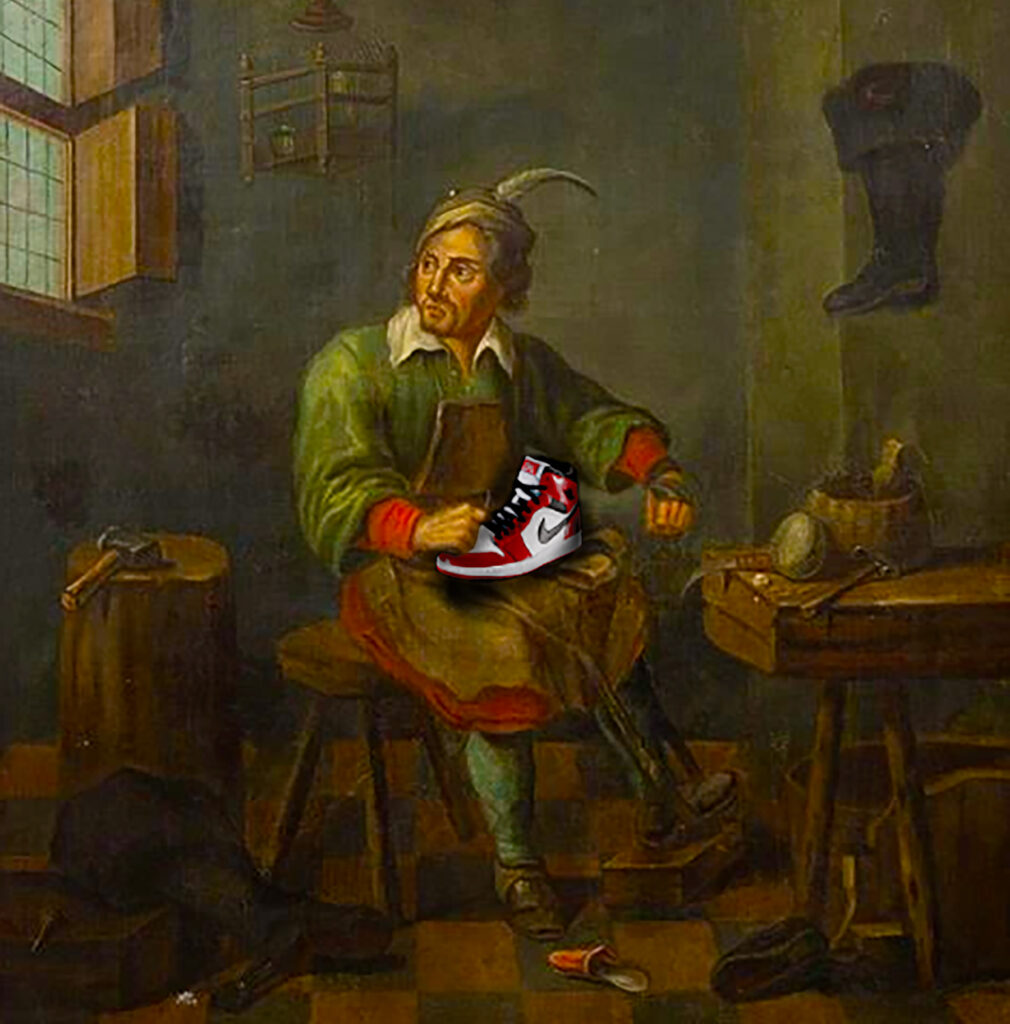As with many political movements, the reformers become the tyrants once they reach a certain level of power. Even in the fledgling days of the United States of America, men who had filled Boston Harbor full of tea to protest a tax on tea, and fought a war to free themselves from the “tyranny of the Crown”, immediately imposed a federal whisky tax following the War of Independence. When burdened farmers stood up against the tax, President George Washington led an army of their fellow countrymen against them.
The Whisky Rebellion really needs its own blog post, but I’m sure the historically minded will get the point. In the immortal words of my cousin Mark Twain, “History never repeats itself, but it does often rhyme.” (foreshadowing: Samuel Clemmons had Quaker ancestry).
The Puritans, many of whom died taking a stand for religious liberty, had won. The “true religion” was now the state religion in America, and since Cromwell’s men beheaded King Charles, it was also the state religion of England. Anyone who did not embrace the “true religion” would suffer for it.

If you have read my previous posts, and I hope you have or will, you will know the Congregationalists, as we shall refer to them, were quick to try (by civil court, ecclesiastical court or both) anyone who disagreed with their tenets. The problem was that Protestantism itself was fairly new, not to mention the Reformation thereof, and the dogma was not yet set in stone (pun intended).
The English Reformers also had the huge problem that so many of the Puritan leaders were in fact lawyers, or at the very least had studied the law, both civil and ecclesiastical. As we have seen with Anne Hutchinson, John Wheelwright, et al., the English tradition of murder-by-trial was often commuted to banishment due to the Puritans’ “strict adherence” to the law.
Now enough time had passed and enough legalistic treatises had been written by the likes of John Cotton, a notorious fence-sitter in his early years, that the molten iron of Puritanical dogma had been hammered into a sword. Puritan magistrates, with this sword in hand, would stand up to their new enemy, a sect so dangerous and insidious it could shake the foundations of British society and even civilization itself! The Quakening is upon us!

Okay, wait a second, Tight Genes. Aren’t the Quakers that pacifistic group that liked to call themselves “Friends”?
Why, yes, they were/are. And as early as the 1640’s, their founder George Fox and fellow “seekers” started to spread the heretical message that there was no reason for fighting amongst Protestants, since the “Spirit of God” and the “Light of Christ” was inside of everyone. All one needed to do to be saved from damnation was to embrace the Light.
The term Quaker was meant to be derisive, but in humble Quaker fashion, they adopted it. Therefore, we will refer to them as “Quakers”, “Friends”, or “Seekers” (the most fervent of the bunch).
I feel our Rhode Island ancestor, Anne Hutchinson, would have loved the “Friends”, if she had not been banished from Boston and murdered by Wampage and his crew. Please read my Anne Hutchinson series if you don’t understand the reference.
Anne and her lot were massacred in the Bronx in 1643, but her youngest sister Catherine Marbury Scott had stayed behind in Rhode Island with her Baptist shoemaker husband Richard Scott. They were two of the first to hear and embrace the message of the Quakers.
George Fox’s father was a strict Puritan and an affluent fabric merchant. Other Puritans we have spoken of in earlier posts, such as William Hutchinson, made their fortunes in wool cloth. I’m starting to see a pattern.
Anyway, George did not enter the ministry as most expected from him. He found solace in shoemaking. Many of you may be picturing the poor cobbler from the German children’s tale “The Elves and the Shoemaker”, but remember Nike and Adidas are also shoemakers.

During the English Civil War, George Fox began to form his ideas into a doctrine he could share, and share he did. Perhaps he overshared, because his ideas landed him in prison. (Strange to see that happening in the Commonwealth once again. Being jailed for words or ideas that is.)
Like many zealous religious sects, martyrdom is the pinnacle of zeal, so of course Fox gathered followers exponentially each time he was arrested, which was several times. Before long, the Friends realized they must share their message with the New World.
In 1655, two women, young Mary Fisher and elderly Ann Austin, set out for Boston in the Swallow as Quaker missionaries. Somehow, word of their plans arrived before them because upon reaching Boston Harbor, the Boston authorities had them arrested.
Their books and belongings were confiscated and burned, and the ladies were imprisoned and tortured. The missionaries were allowed no representation, and even the window to their cell was boarded over so they could not share their message with the outside. After being brutalized for weeks, they were shipped off to Barbados and threatened to never return upon pain of death.
Remember what I said earlier about martyrdom? Boston was not the first time Mary Fisher was treated so barbarously. She and another female Seeker were previously whipped in Cambridge (England) for sharing their message in the university town. Not deterred by her treatment in Cambridge, nor Boston, in 1657 she would travel to Turkey to proselytize the Sultan of the Ottoman Empire, Mehmed the Hunter.

English authorities caught word of her mission and ordered the Captain to put off Mary and her party of Quaker missionaries in Venice, but the tenacious Mary Fisher would not be dissuaded. She convinced the Captain to drop them in Greece where they continued their trek overland to the front lines of the warring Ottomans where she was savagely murdered. NO, wait! Just kidding!
Our plucky Mary Fisher somehow made her way to the very tent of the Sultan himself. Not only were she and her compatriots made guests, brave Mary was given an audience via translator with the Sultan who seemed to agree with many of her tenets.
For many years, Mary Fisher would continue to travel, sharing the message of the Friends. Eventually she would retire to a Quaker settlement in the Carolinas, where she would recall her experience with the Ottomans, “though they be called Turks, the seed of them is near unto God, and their kindness hath in some measure been shown towards his servants.”
(To be continued in The Quakening: Part 2)